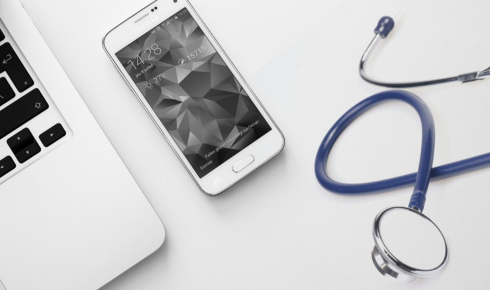I don’t know about you, but waiting in a hospital lobby for hours, staring at flickering TV screens and sipping from lukewarm water bottles, isn’t my idea of how healthcare should be. There’s something deeply frustrating—almost helpless—about needing care and being made to wait. That’s not just inconvenience. It’s a systemic gap in access.
And honestly, it’s time we move past that.
That’s exactly where LimaTeb.com comes in with a mobile healthcare solution that’s not just smart—it’s necessary. It’s like calling an ambulance, except instead of rushing you to a hospital, the hospital comes to you. Let that sink in.
When Care Becomes Convenient
Mobile healthcare isn’t a new idea—but LimaTeb is making it work where others have merely dabbled. Imagine this: you’re at home, feeling the signs of a high fever coming on. Instead of packing your bags, calling someone for a ride, or standing in a line behind a dozen others coughing into their sleeves, you just pull out your phone and book a doctor to your door.
Within hours—sometimes less—you’re seen by a professional, right in your living room. No waiting. No paperwork jungle. Just human care, when and where you need it.
This isn’t futuristic. This is happening right now, and people across Tehran and other cities are already tapping into this comfort-first approach.
What Makes LimaTeb Different?
Plenty of apps offer something similar in theory. But in practice? Well, that’s where the cracks show. LimaTeb has built something smarter—not just in technology, but in intent.
Their platform connects patients with licensed doctors and nurses who actually come equipped to treat—not just consult. We’re talking real diagnostics, prescriptions, wound care, IV therapy, and even post-surgery checkups. It’s not telehealth with a camera glitch or a chatbot with generic advice. It’s physical, professional care—delivered.
What also sets them apart is how they’ve designed the entire process to be patient-first. The user experience on their app is refreshingly smooth. You can schedule appointments, track your clinician’s ETA, and access your medical records—all without needing to call customer service three times.
Built for Families, Not Just Emergencies
LimaTeb isn’t only for emergencies. In fact, much of its power lies in day-to-day care. Have an elderly parent who needs regular checkups? Or a child recovering from surgery who shouldn’t be exposed to a hospital’s chaotic energy? This service is a game-changer.
Routine injections, blood draws, dressing changes, and even physiotherapy can all be done at home. For chronic illness management, this means fewer hospital trips. For busy professionals, it’s time saved. For caretakers, it’s peace of mind.
Bridging Gaps in the Healthcare System
Let’s talk big picture. Iran, like many countries, faces hospital overcrowding, staffing shortages, and an ever-growing need for faster care delivery. While hospital infrastructure can take decades to expand meaningfully, mobile health platforms like LimaTeb can scale quickly, adapt, and reach communities where traditional systems struggle.
In rural areas, where the nearest hospital may be hours away, LimaTeb’s mobile team can bridge the gap. In cities where traffic alone makes emergency visits stressful, their model becomes a stress-reliever and a literal lifesaver.
This isn’t just innovation for the sake of being “techy”—it’s rethinking access entirely.
Human-Centered, Not Just AI-Powered
Sure, LimaTeb uses technology—smart routing, cloud-based medical records, scheduling automation—but at its core, this is a people-powered model. The nurses and doctors showing up at your home? They’re real, compassionate professionals who chose this line of work because they care.
And honestly, in a world racing toward automation and bots, it’s reassuring to know that healthcare is still anchored in humanity—just better distributed.
Why This Matters Now More Than Ever
After the COVID-19 pandemic, our collective relationship with healthcare changed. We now expect remote services. We’re more comfortable with digital platforms. But most of all, we’re aware—acutely aware—of the risks and limitations of traditional care systems.
That’s why LimaTeb’s timing couldn’t be more spot-on. They’re not reacting to a crisis. They’re designing a solution for the future.
Imagine a world where nobody waits in line for an MRI referral. Where your post-op checkup happens in your kitchen. Where elder care doesn’t require uncomfortable commutes or scheduling battles. That’s the direction LimaTeb is leading us in—and frankly, it feels overdue.
Final Thoughts
Healthcare should never be a burden. It should be accessible, respectful of your time, and centered around your comfort—not bureaucracy. LimaTeb is doing what so many of us have silently wished for: giving control back to the patient.
We don’t know what tomorrow’s healthcare system will look like in every detail. But with companies like LimaTeb.com paving the way, it’s safe to say the days of endless hospital lines are numbered.
It’s not just about convenience. It’s about dignity, accessibility, and reimagining how we take care of one another.
So next time you’re feeling unwell, or someone you love needs medical care, just remember—you don’t always have to go to the hospital. Sometimes, it can come to you.
And that, friends, is the kind of progress we all deserve.




